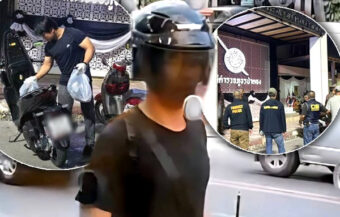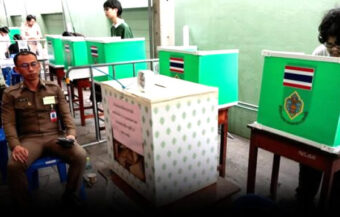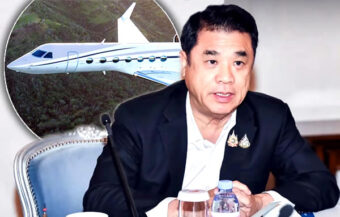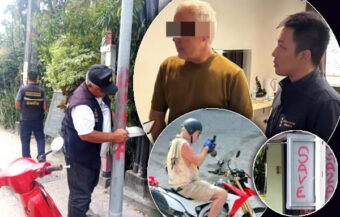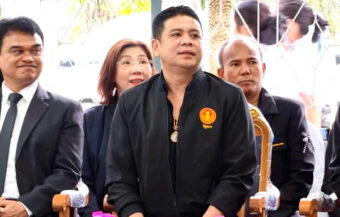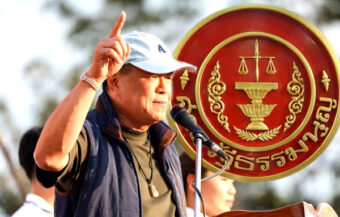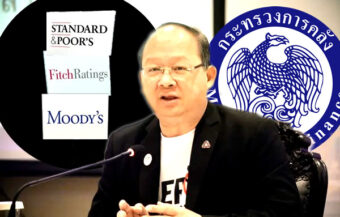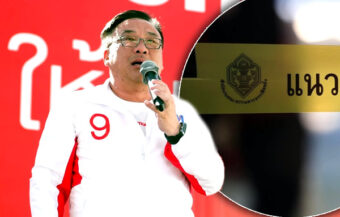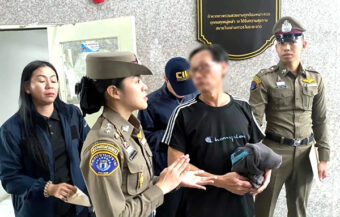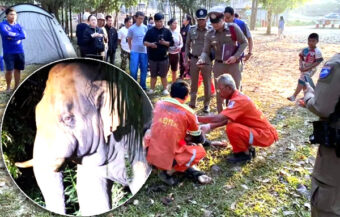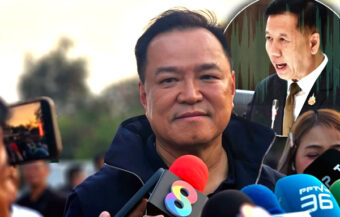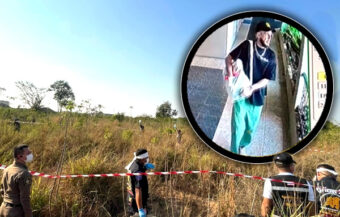Political strife and confusion grip Thailand as trust collapses between parties, Anutin campaigns hard, Bhumjaithai manoeuvres behind a 120-day government, while alliances are tested and constitutional reforms face delays, leaving the political future highly uncertain.
A political storm is brewing in Thailand as Prime Minister Anutin crisscrosses the country ahead of his cabinet’s swearing-in, with politics and the economy murky. The People’s Party, Pheu Thai and ruling Bhumjaithai show no coordination, trust is collapsing, and while Anutin boasts of winning the Sisaket by-election and a 120-day government, insiders’ spin and his actions suggest long-term manoeuvring behind the short-term rhetoric.
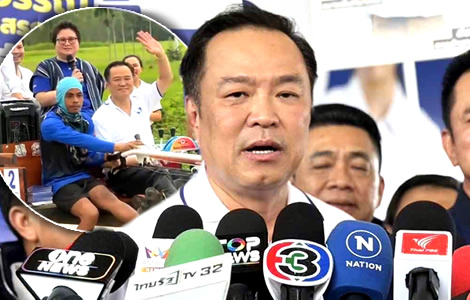
Just days before the new cabinet is to be sworn in, Prime Minister Anutin Charnvirakul is not waiting. Instead, he is already back on the road, campaigning hard in Sisaket. On Sunday, he confidently predicted that the Bhumjaithai Party would win the looming by-election.
He appeared upbeat and relaxed, riding through the streets in a pickup truck. The Prime Minister stopped to greet locals, pose for photos, and urge voters to back his party’s candidate, Jintawan Traisaranakul, known locally as “Teacher Eve.”
At 4:30 p.m. in Phusing District, Anutin paid respects at the local City Pillar Shrine. When asked by reporters what he prayed for, he said he wished for peace, strength, and happiness for the country. He added that he would never disturb sacred spirits to secure votes.
Prime Minister Anutin insists he prays for the nation only and not for any political victory or personal gain
When pressed on whether he had prayed for victory, Anutin responded sharply. He insisted that he did not mix politics with spirituality. If Bhumjaithai wins the September 28 poll, it will be by public support, not divine intervention.
Later, Anutin switched vehicles. He climbed aboard an “e-taek” truck alongside Teacher Eve, flanked by senior party members including Minister Paradorn Prisananantakul and spokesperson Nan Boonthida Somchai. The team toured the Phusing Market area, chatting with vendors and receiving warm greetings from villagers.
Despite the upbeat tone on the ground, the political backdrop is far more tense. Anutin has repeatedly stated that his new government will remain in power for just 120 days. However, this timeline is already being quietly questioned by party insiders.
Behind the scenes, Bhumjaithai-linked media figures are now suggesting the government might seek a “wiggle room” extension. The official line remains unchanged, but the messaging is shifting. Therefore, speculation is growing.
Bhumjaithai insiders hint at extension despite the Prime Minister insisting it will last only 120 days
At the same time, Anutin has gone on the offensive against critics, particularly the Pheu Thai Party. Speaking in Sisaket on the same day, he accused Pheu Thai of premature attacks. “The government hasn’t even started yet,” he said. “So what exactly are they debating?”
He dismissed Pheu Thai’s claim that it would act as a “constructive opposition.” Instead, he accused them of being divisive and destructive. “Let’s stop fighting. We’ve got four months. Let’s use them,” he said, adding, “Let the people judge.”
His comments also reflected a shift in tone. While he previously downplayed opposition scrutiny, Anutin now warns that internal political feuds could hurt national unity. “If we debate everything now, the country won’t move forward,” he warned.
Meanwhile, the Bhumjaithai Party’s alliance with the People’s Party (PP) is coming under strain. The PP backed Anutin’s bid for prime minister in exchange for key reforms. Chief among them was a commitment to start rewriting the 2017 Constitution.
Anutin warns against internal conflict while the party’s alliance with People’s Party faces mounting strain
However, signs now suggest Bhumjaithai may not honour this deal fully. In particular, senators aligned with the party—often called the “Blue Line”—are quietly pushing back. They argue that a national referendum must come before any charter rewriting process.
Senator Phisit Apivatanapong, a vocal Bhumjaithai ally, insists that full constitutional reform cannot proceed without a vote. “Let the people decide first,” he said. Still, critics argue this is just a tactic to stall reform efforts.
Interestingly, Phisit himself is embroiled in a scandal. He is among several senators investigated by the Election Commission over alleged collusion in the recent Senate race. Yet he remains active and influential.
This duality defines Bhumjaithai’s political strategy. On one hand, the party claims to support reform. On the other hand, its Senate allies resist every effort to make structural changes. Moreover, the party appears to be consolidating power far beyond its patchwork coalition of 146 MPs.
Blue Line senators push back while Bhumjaithai’s dual strategy consolidates power beyond its coalition
In fact, it has absorbed factions from the crumbling United Thai Nation (UTN) Party. That move defies the original pact with the PP, which called for a limited, minority government. Instead, Bhumjaithai is building alliances and preparing for elections.
The benefits of the 2017 Constitution to Bhumjaithai are undeniable. The same legal framework that the party pledged to reform is the one that helped it rise. The current system favours Senate influence, especially over key appointments.
These Senate-selected independent bodies—such as the charter court and anti-corruption commission—hold vast political power. Rewriting the constitution would almost certainly result in its overhaul or even abolition.
Therefore, it’s no surprise that many in the Blue Line want to delay or derail the reform process. Their strategy appears clear: block the formation of a charter-drafting committee, or CDC, at any cost.
Bhumjaithai and blue line senators act strategically to delay constitutional reform and consolidate their control
The PP has made amending Section 256 of the Constitution its main priority. This clause governs how constitutional amendments are initiated. Right now, changes require one-third of the Senate—67 out of 200—to vote in favour.
However, the Senate currently includes between 160 and 170 conservative members. With that makeup, meaningful change is nearly impossible. Even so, the PP is pushing forward.
The most recent ruling from the Constitutional Court added confusion. While the court showed flexibility regarding a referendum, it rejected the idea of directly electing CDC members. That limitation plays directly into Bhumjaithai’s hands.
If Parliament selects the CDC, Bhumjaithai can control the process. In fact, analysts believe the party is already positioning itself for a sweeping electoral win. With 100+ seats expected, and allies among conservative parties and the Senate, the numbers are on its side.
Bhumjaithai positions itself for sweeping electoral win using Senate influence and conservative alliances
This setup could give Bhumjaithai and its partners more than 350 out of 700 total seats. Such control would all but guarantee they can block unwanted reforms and pass favoured legislation. Consequently, their resistance to constitutional change is not ideological—it’s strategic.
Still, the public is watching. Bhumjaithai’s next moves could determine whether it retains credibility or faces backlash. The party has begun rolling out short-term populist policies. These include reviving the “Khon La Khrueng” co-payment scheme and slashing train fares.
Anutin’s revenge as he comes back to power as Prime Minister elect after resigning from cabinet in June
Husband of Thaksin’s daughter Pintongta tipped as Pheu Thai Prime Ministerial nominee in political reset
These initiatives are popular and effective. But critics argue they are just a distraction from broken promises. Indeed, some within the PP now call for an early no-confidence vote.
If tensions rise further, Anutin may dissolve the House before the 120-day deadline. A snap election would reset the game. But it would also expose Bhumjaithai’s real strategy—to delay reform while solidifying its grip on power.
Ultimately, the question is not whether Bhumjaithai will keep its promises. The question is whether it ever intended to keep them at all.
Join the Thai News forum, follow Thai Examiner on Facebook here
Receive all our stories as they come out on Telegram here
Follow Thai Examiner here
Further reading:
New cabinet to be sworn in at Dusit Palace in Bangkok on Wednesday September 24th before the King
Anutin planning eight-month economic programme as his PM tenure will extend to the next government
2nd Army chief warns Acting PM Cambodian regime cannot be trusted and that border must stay closed


